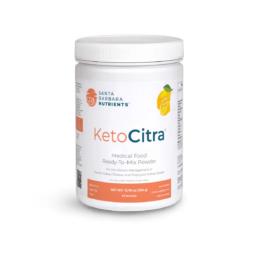Tubulointerstitial nephritis (TIN) is a kidney disorder characterized by inflammation of the tubules and interstitial tissue surrounding them. This inflammation can impair kidney function, leading to various degrees of kidney dysfunction or, in severe cases, kidney failure. The causes of TIN are diverse, ranging from infections and autoimmune diseases to drug reactions and genetic factors. Understanding the various triggers and mechanisms of TIN is crucial for prevention, diagnosis, and treatment. Moreover, adopting an integrative approach can help manage TIN holistically by addressing underlying causes and supporting kidney health through lifestyle, dietary, and therapeutic measures.
By Majd Isreb, MD, FACP, FASN, IFMCP
What is Tubulointerstitial Nephritis?
Tubulointerstitial nephritis primarily affects the kidney’s tubules and the surrounding interstitium (the space between tubules). It differs from glomerulonephritis, which mainly affects the glomeruli, the filtering units of the kidney. In TIN, the inflammation can cause damage to the kidney tissues, leading to impaired reabsorption and secretion of various substances essential for the body. Symptoms of TIN may include fatigue, nausea, high blood pressure, and reduced urine output. In some cases, it can progress to chronic kidney disease (CKD) if not treated promptly.
TIN can be classified into acute and chronic forms. Acute TIN develops suddenly and is often reversible if diagnosed early and treated appropriately, while chronic TIN progresses more slowly and may lead to irreversible kidney damage.
Genetic Tubulointerstitial Nephritis
Although less common, genetic factors can play a role in the development of tubulointerstitial nephritis. Genetic TIN is often associated with hereditary conditions that lead to kidney dysfunction. These can include disorders such as medullary cystic kidney disease or autosomal dominant tubulointerstitial kidney disease (ADTKD).
ADTKD is a genetic disorder characterized by progressive kidney damage, leading to chronic tubulointerstitial nephritis. Mutations in specific genes like UMOD, MUC1, and REN are often responsible for the disease. Patients with genetic TIN may experience symptoms similar to other forms of TIN but often present with a family history of kidney disease and progressive decline in kidney function starting in adolescence or early adulthood.
Early detection and genetic testing can help in managing genetic TIN. Integrating genetic counseling into the care of individuals with a family history of kidney disease may provide valuable insights into their risk and guide treatment decisions.
Drug-Induced Tubulointerstitial Nephritis
One of the most common causes of acute tubulointerstitial nephritis is drug reactions. Medications can trigger an immune-mediated inflammatory response in the kidneys, leading to damage. Identifying the culprit drug and discontinuing its use is essential to halt the progression of TIN.
Join us to end the kidney disease epidemic
Medications That Can Cause TIN
The following table lists common medications associated with drug-induced TIN:
| Drug Class | Examples |
|---|---|
| Antibiotics | Penicillins, cephalosporins, rifampin |
| Nonsteroidal Anti-Inflammatory Drugs (NSAIDs) | Ibuprofen, naproxen |
| Proton Pump Inhibitors (PPIs) | Omeprazole, esomeprazole |
| Diuretics | Furosemide, thiazides |
| Antivirals | Acyclovir, indinavir |
| Anticonvulsants | Phenytoin, carbamazepine |
| Immune Checkpoint Inhibitors | Nivolumab, pembrolizumab |
In cases of drug-induced TIN, discontinuing the offending drug usually leads to recovery, though steroids or other immunosuppressive treatments may be required in severe cases. Kidney function should be monitored closely to prevent long-term damage.
Supplements and Tubulointerstitial Nephritis
While medications are a well-known cause of TIN, certain supplements and herbal products can also trigger this condition. Herbal remedies, often perceived as natural and safe, may contain nephrotoxic compounds that can damage kidney tissues.
Supplements That Can Cause TIN
Some supplements and herbs have been associated with kidney damage, including TIN:
- Aristolochic acid (found in some traditional Chinese medicines) has been linked to severe kidney injury, including TIN.
- Chlorella is a dietary supplement made from green algae and has various uses. Acute TIN has been reported to be caused by the use of chlorella.
Patients with existing kidney conditions or those taking nephrotoxic medications should exercise caution when using supplements, as they may increase the risk of developing TIN.
Infection-Associated Tubulointerstitial Nephritis
Infections are the second most common cause of tubulointerstitial nephritis (TIN) in developed countries, following drug-induced cases, and the leading cause in developing countries. The infections leading to TIN can be categorized as follows:
- Bacteria: Escherichia coli, Campylobacter, Salmonella, Streptococci, Mycoplasma, Yersinia
- Viruses: HIV, cytomegalovirus, Epstein-Barr, polyomavirus, herpes simplex, COVID-19
- Fungi: Histoplasma, Coccidioides
- Parasites: Toxoplasma, Leishmania, Giardia
Patients with infection-related TIN usually present with symptoms of the underlying infection, and acute kidney injury (AKI) is rarely the initial symptom. Proper treatment of the infection is essential and should precede any steroid therapy used to manage TIN.
Join us to end the kidney disease epidemic
Autoimmune Tubulointerstitial Nephritis
Autoimmune diseases, including systemic lupus erythematosus (SLE), Sjogren’s syndrome, sarcoidosis, inflammatory bowel disease (IBD), and IgG4-related disease, are significant causes of tubulointerstitial nephritis (TIN).
- SLE: Lupus nephritis, affecting up to 40% of adults and 80% of children with SLE, traditionally involves glomerular injury, but recent evidence suggests interstitial fibrosis and tubular atrophy are better predictors of treatment response and prognosis. Despite advances, 10% of patients may progress to end-stage renal disease (ESRD).
- Sjogren’s Syndrome: Kidney involvement is rare (<10%) but typically manifests as TIN, characterized by plasma cell infiltration. Symptoms can include distal tubular acidosis and nephrogenic diabetes insipidus.
- Sarcoidosis: Granulomatous TIN is common in sarcoidosis and is often accompanied by altered vitamin D and calcium metabolism. Granulomas with epithelioid histiocytes are a key feature.
- IBD: Up to 23% of IBD patients may experience renal dysfunction, with TIN being the second most common cause. TNF-alpha may play a role in the inflammation of both IBD and TIN.
- IgG4-Related Disease: IgG4 disease causes tubulointerstitial damage, often presenting with proteinuria. This condition responds well to steroids but can mimic malignancy on imaging, so careful differential diagnosis is needed.
An Integrative Approach to Tubulointerstitial Nephritis
Given the diverse causes of tubulointerstitial nephritis, an integrative approach that combines conventional medical treatments with lifestyle and dietary changes can offer a more holistic way to manage the condition.
- Medication Review, Monitoring, and Deprescribing: Patients with TIN should work closely with their healthcare providers to review all medications and supplements they are taking. Monitoring kidney function regularly can help detect early signs of nephrotoxicity and allow for timely interventions.
- Nutrition and Hydration: Proper nutrition and hydration can worsen TIN. Patients with TIN may benefit from glutathione support by enhancing the intake of its precursor amino acids, such as cysteine, glycine, and N-acetyl cysteine. This can be achieved through a balanced diet that includes moderate amounts of sulfur-rich proteins—found in meats like beef, fish, and poultry—and a variety of sulfur-containing vegetables, particularly those from the allium family (such as garlic, onions, leeks, and chives) and cruciferous vegetables like broccoli and kale.Maintaining this balance is key and can be effectively managed with a predominantly plant-based diet that judiciously includes, rather than entirely excludes, animal proteins. This approach ensures adequate provision of essential nutrients while supporting kidney health. Staying well-hydrated can also support kidney function and help flush out toxins.
- Anti-inflammatory Therapies: Since inflammation is central to TIN, incorporating anti-inflammatory foods and supplements like omega-3 fatty acids (found in fish oil) may help reduce inflammation in the kidneys. Curcumin, a compound in turmeric, is another supplement known for its anti-inflammatory properties, though it should be used cautiously in people with kidney disease.
- Mind-Body Therapies: Stress can exacerbate inflammation and impact overall health, including kidney function. Practices like yoga, meditation, and mindfulness can help manage stress, reduce inflammation, and improve kidney health outcomes in patients with TIN.
- Herbal Medicine: While some herbs can be nephrotoxic, certain kidney-supportive herbs, such as astragalus and dandelion root, may be beneficial in promoting kidney health when used under medical supervision. However, it is crucial to consult with a healthcare professional before starting any herbal treatments to avoid adverse effects.
- Functional Medicine Testing: In integrative care, functional medicine testing can identify underlying imbalances, such as nutrient deficiencies, gut dysbiosis, or environmental toxin exposure, which may contribute to inflammation and kidney dysfunction. Tailoring treatment based on these insights can optimize outcomes for TIN patients.
The Bottom Line on Tubulointerstitial Nephritis
Tubulointerstitial nephritis is a complex condition with multiple causes, ranging from genetic factors and medications to supplements. While conventional treatments focus on managing symptoms and halting kidney damage, an integrative approach that addresses the root causes of inflammation and supports overall kidney health can enhance patient outcomes. Through careful medication management, a kidney-friendly diet, and the incorporation of stress reduction techniques, patients with TIN can take control of their health and work toward preserving kidney function for the long term.









